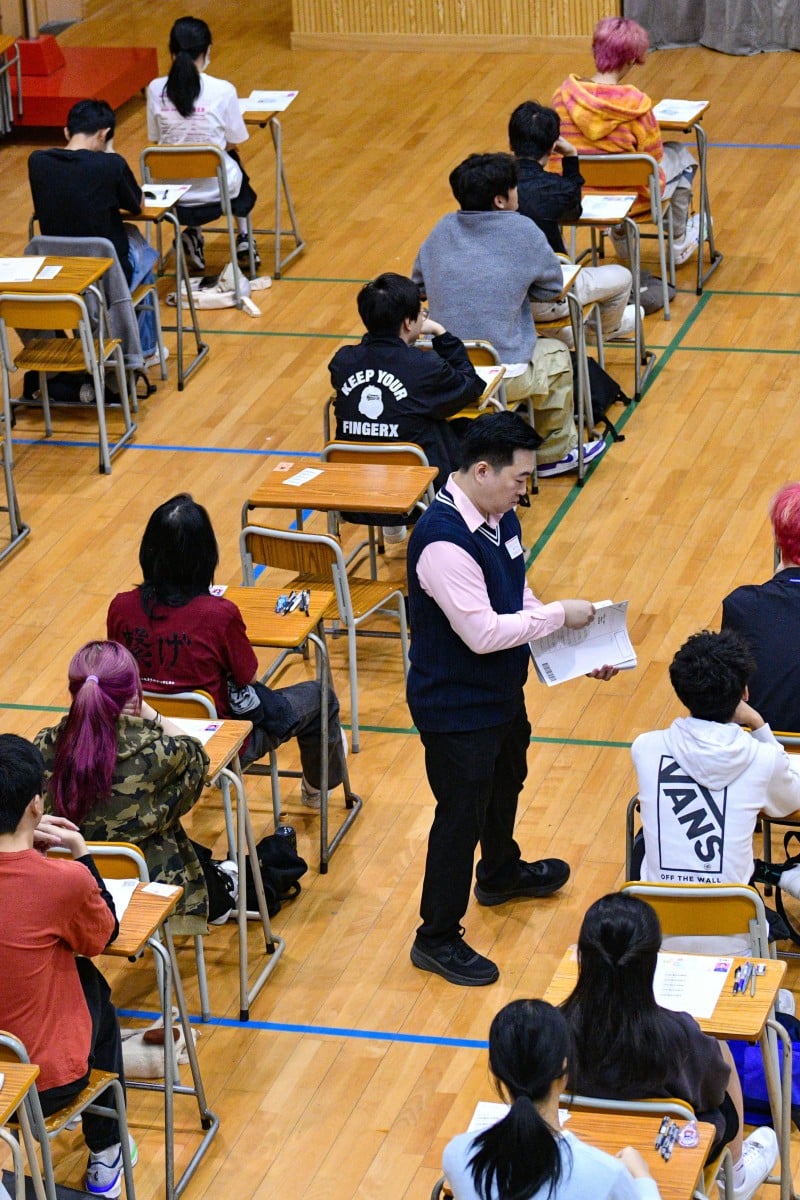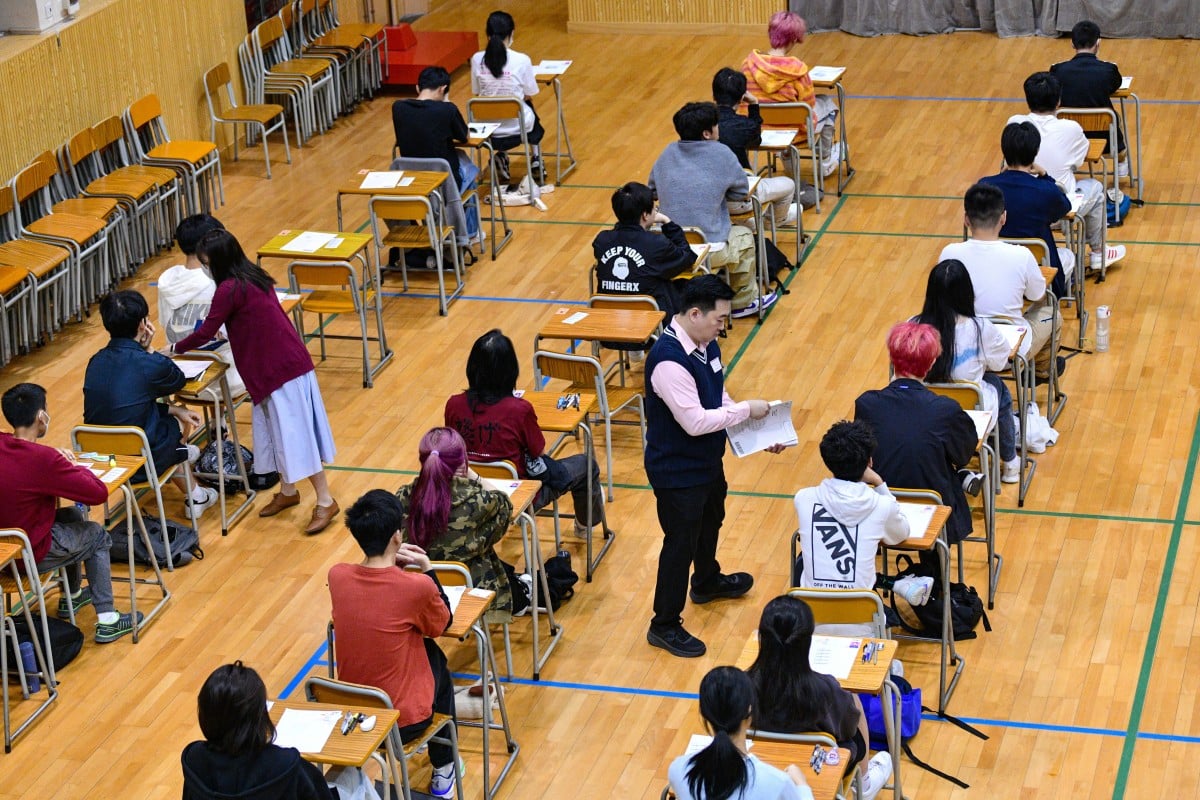
- Revamped category expected candidates to elaborate on source material instead of expressing their personal opinions, as was the case in liberal studies
- Students had to explain the importance of education in enhancing China’s comprehensive national power
 More than 45,000 Hong Kong students sat for the inaugural university entrance exam for citizenship and social development. Photo: Handout
More than 45,000 Hong Kong students sat for the inaugural university entrance exam for citizenship and social development. Photo: HandoutOver 45,000 Hong Kong students sat for the very first citizenship and social development university entrance exam on Tuesday. The focus of the exam was on students’ knowledge about the nation’s security and development.
Teachers said the test was vastly different in terms of the demands it placed on students compared with the controversial liberal studies exam it replaced.
Unlike the previous curriculum that encouraged students to express their own personal opinions or consider multiple perspectives, the revamped subject mainly required candidates to elaborate on source text material.
“It is no longer about making judgments about something, but about utilising knowledge,” Liu Tin-yan, a former tutor for liberal studies with 10 years of teaching experience, said.
She noted that in the past, the liberal studies test contained comparative questions with clear stances that required detailed explanations from students. But such questions were not in this year’s paper, said the educator who teaches citizen and social development at a Tsuen Wan school.
During the two-hour exam, students were asked to explain the importance of education in enhancing China’s comprehensive national power and how national security education activities strengthened understanding of the country. It also asked how mainland China study tours cultivated a sense of national identity.
DSE 2024: Hot topics for this year’s History exam
Candidates were required to refer to media reports about the 20th National Congress, Ministry of Education data and the white paper on “China’s comprehensive well-off society”.
Multiple-choice questions also tested students’ knowledge of the National Anthem Ordinance and Basic Law, Hong Kong’s mini-constitution, while another required them to identify which city among Foshan, Quanzhou, and Zhaoqing was part of the Greater Bay Area.
Unlike the seven-level grading system of the Diploma of Secondary Education, the revamped subject only has two grades: “attained” and “not attained.”
Wong Chung-wai, vice-principal of Concordia Lutheran School (North Point), said the new exam was less challenging compared with the previous liberal studies test. He added the change was in line with the principle of the revamped subject.
“In the past, there were more challenging questions with a higher standard,” he said. “However, now that the assessment is simplified to ‘attained’ or ‘not attained,’ the standard is evidently lower.”
Both educators said they anticipated that most of the exam would revolve around the topic of China. Liu noted there were fewer questions about global development, but she considered it “acceptable”.
DSE 2024: English reading paper causes trouble for students
Li Chun-kit, a DSE student from HKTA Tang Hin Memorial Secondary School, said the exam did not engage a perspective of critical thinking and placed less emphasis on comparing negative aspects of a particular issue.
The test was also a bit harder than he expected, but he was optimistic about his performance.
“The longer questions, which carried more marks, required me to apply my own knowledge because the data files provided were not particularly helpful,” he said.
The student recommended that future candidates stay up-to-date on news related to Hong Kong and the mainland, and educate themselves beyond using textbooks and classroom materials to prepare.
“I found the subject quite interesting overall because it covers a wide variety of topics, including the development of technology in China,” he said.
Both educators noted the exam contained a new question that required candidates to rely solely on their own knowledge, without any additional information provided.
DSE 2024: Mathematics exam ‘noticeably easier’ than last year, says top tutor
The question asked students to explain how China’s development in economics, technology and culture showcased the country’s comprehensive national power.
Wong said this type of question meant that future candidates must be armed with general knowledge relating to the country’s development.
The DSE exams will end on May 4, with results scheduled to be released on July 17.
Introduced in 2009, the now-scrapped liberal studies was one of four core subjects for senior secondary school students aimed at enhancing social awareness and developing critical thinking skills.
But the subject came under the spotlight as pro-establishment lawmakers and political heavyweights blamed it for escalating violence among young people during the 2019 anti-government protests, while some teaching materials were labelled as biased.